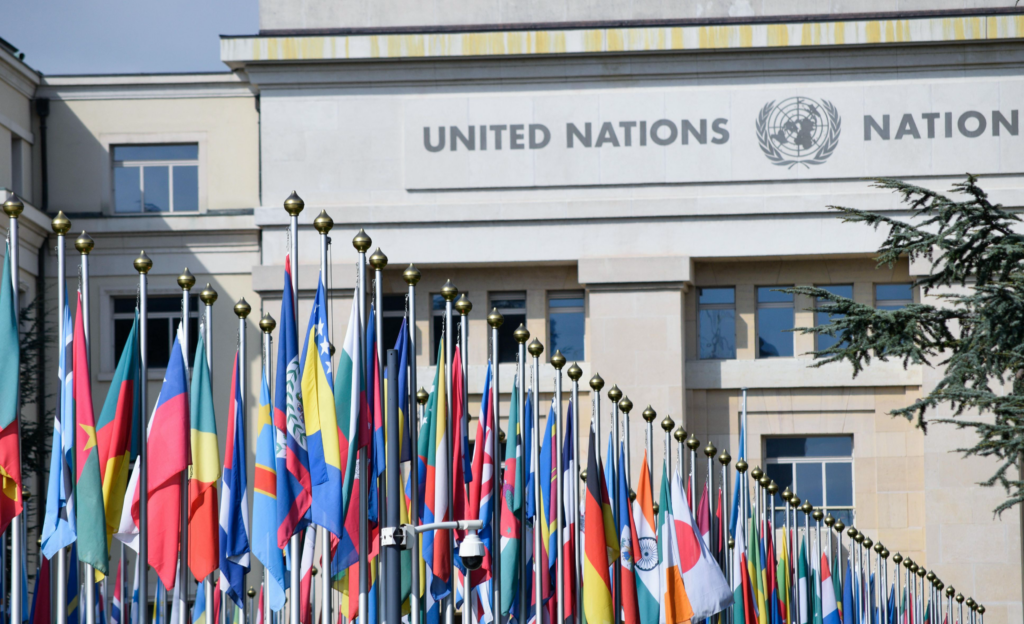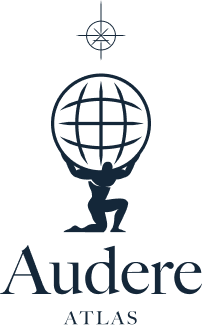
Tags
Share
Evolving Sanctions Environment
Welcome to the Audere Atlas, the Audere Group’s fortnightly update on global geopolitical trends, how we engage with them, and what they mean for your organisation.
This week we take stock of the global sanctions environment, where shifting dynamics in recent years appear set to continue apace after Trump’s election victory. Exploring recent developments, including the potential expansion of thematic sanctions to encompass ESG violations, we look at how businesses can proactively counter the challenges posed in this first in a series on international sanctions.
The Audere Atlas offers timely, actionable insights that both support key decision-making and highlight areas for further exploration and understanding.
The Bottom Line
A strategic approach to compliance is essential as the global sanctions landscape grows more intricate, driven by expanding Magnitsky-style and ESG-focused measures alongside potential US policy shifts. To stay ahead, businesses must be proactive in managing the associated risks, ensuring resilience and regulatory alignment in an increasingly unpredictable environment.
The Brief
In recent years, the international sanctions landscape has seen significant developments, thriving in the context of novel international conflicts and reinvigorated strategic competition. Events from the breakdown of the ‘Joint Comprehensive Plan of Action,’ or Iran Nuclear Deal, in 2018 to the 2022 full-scale invasion of Ukraine have seen a flourishing of state sanctions. The rise of targeted, thematic sanctions presents a relatively new and expanding approach that has complicated the global sanctions environment since 2016.
Thematic sanctions have become increasingly common since the legislation of the Global Magnitsky Human Rights Accountability Act of 2016. Named after a Russian tax lawyer beaten to death by Russian authorities following his criticism of state corruption, the law was the first to legislate for the use of sanctions in response to grievous state corruption or violations of human rights law. With the UN lacking any such human rights sanctions capability, the Global Magnitsky Act has since been mimicked in a range of states, from Canada, Australia, the UK and the EU. Despite this apparent alignment, there has been limited overlap between these bodies in terms of the entities sanctioned, resulting in the fragmentation of sanctions which purport to espouse the same goals. The outcome is a disjointed set of sanctions on various entities and individuals rendering the global sanctions landscape tough to navigate. This trend is likely to become more widespread as governments apply the thematic model to other global challenges, from anti-corruption efforts to environmental, social, and governance (ESG) criteria.
With a focus on finance at the ongoing COP29 summit in Baku, and global investors and regulators alike placing more emphasis on ESG standards, there is a realistic possibility governments will increasingly seek to introduce sanctions targeting individuals, companies, or governments that violate ESG principles. This is particularly acute concerning climate change, but sanctions relating to governance failures have also been broached in recent months.

The UK’s new Labour government announced over the summer that it was considering sanctions against high-profile Israeli politicians, including National Security Minister Itamar Ben Gvir and Finance Minister Bezalel Smotrich. The comments come in response to in response to controversial statements and actions in the West Bank and Gaza, which the UK views as in violation of international law. The measures had been mooted by Conservative Foreign Secretary Lord Cameron, indicating a degree of bipartisan support. Nevertheless, the likelihood of full implementation of the UK’s proposed Israeli sanctions will ultimately depend on political calculus, as diplomatic ties and strategic alliances such as those between the UK, Israel, and the US, are likely to limit the extent of such measures. While as yet unrealised, and in all events unlikely, the implications of these potential sanctions would nonetheless be profound, setting a new precedent in the application of sanctions where not only individuals tied to authoritarian regimes but also domestic politicians with extremist views are targeted.
Trump’s re-election will influence many of the above dynamics. Having promised to bring about a swift conclusion to the war in Ukraine, the future status of Russian sanctions is uncertain. While a negotiated peace agreement between Ukraine and Russia might lead to some easing of sanctions in Russia, it is unlikely to result in an immediate or complete lifting.
Sanctions would likely remain as a means to prevent further Russian aggression, particularly in spheres like cyber operations and international influence campaigns. However, a key Russian goal in any peace negotiation would likely be a reduction in the price cap on Russian oil exports, indicating sanctions would likely be on the table to some degree.

So what?
For businesses, the evolving and increasingly complex sanctions landscape presents a host of challenges. Often lacking oversight over corporate ownership structures, and without clarity on the tangled web of international sanctions, firms are liable to fall into the trap of unwittingly working with sanctioned individuals or entities—or with firms who themselves have engaged sanctioned figures—despite seemingly rigorous KYC and due diligence frameworks.
In 2019, Standard Chartered Bank was forced to pay over $1bn in fines to US and UK authorities for violating sanctions after its Dubai subsidiary was found to have processed transactions on behalf of sanctioned entities in Iran and Sudan. The bank was unaware of this due to the sanctioned entities’ use of intermediary accounts and entities, exploiting multiple ownership layers in opaque jurisdictions. The expensive mistake points to the simple fact that often basic digital tools are not enough to meet the challenge of sanctions compliance. Even the most advanced AI-powered software solutions are liable to overlook obscurities in the intentionally labyrinthine corporate structures of companies engaged in sanctions evasion. The paper trail being scant, advanced methodologies leveraging human source intelligence access are often the only means of uncovering hidden details, relationships and interests which can result in hefty fines, reputational damage, and disruption to operations for unwitting firms.
Investigative capabilities become an increasingly valuable tool for companies working in opaque or frontier markets. Businesses need to be proactive in identifying potential risks before they become problems, and Enhanced Due Diligence (EDD) solutions are critical in this regard. Audere International specialises in leveraging human intelligence (HUMINT) to uncover the complexities behind a company’s ownership structure, financial flows, and business practices. In addition to open-source intelligence (OSINT) and privileged access tools, our deep-dive investigations can uncover hidden ties to sanctioned individuals or entities that help clients avoid inadvertently engaging with businesses or individuals who might be designated, as well as analysing the likelihood of their becoming subject to future restrictions.
With the potential expansion of Magnitsky-style sanctions into ESG criteria, and the almost certain shake-ups to US sanctions under an unpredictable second Trump presidency, Audere is well placed to assist firms in proactively ensuring sanctions compliance, a central part of any successful corporate resilience and risk management strategy.
Keen to know more?
The Audere Group is an intelligence and risk advisory firm offering integrated solutions to companies in complex situations.
We specialise in mitigating the financial, reputational and physical risks faced by our clients in markets across the world through a 360-degree range of services incorporating security advisory, crisis management and strategic intelligence to inform decision making around transactions, supply chains and disputes.
Contact us to learn how our bespoke risk advisory services can work with your unique circumstances to navigate high-risk environments and changing landscapes through the provision of hard-to-reach intelligence and clear analysis.

Disclaimer: The content of this report is for informational purposes only and does not constitute legal or financial advice. For further details or specific inquiries, please reach out to our team directly.





